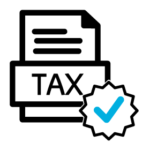Beneficial ownership database
Free access to the database with well-structured information on the beneficiary owners of Ukrainian companies is open and publicly available, the verification mechanism is agreed upon and launched
Completion Status:
Commitment filtering:
The commitment is specific and highlights a narrow policy area. It moves towards achieving an international standard on beneficial ownership transparency and verification. It specifies that the database should include Ukrainian companies. It does not specify what kind of information on beneficiary owners should be available and in what exact format and what kind of verification approach it should have. Within this assessment, we will look at the recommendations provided by Open Ownership[1] and use those as a template. Conducting effective verification is new or is not implemented in most countries. Ukraine is one of the countries pioneering this activity.
[1] Open Ownership website https://www.openownership.org/
The commitment is sufficiently measurable to be monitored. It is possible to assess: whether there is a registry; if it is easy to use and freely available to the public; the quality of data; whether there has been any progress toward the establishment of a verification process; which stakeholders are involved; whether this process was implemented and worked. The commitment states that the information in the database should only cover Ukrainian companies. Most of the indicators in the commitment are measurable and do not require interpretation.
Evaluation:
Access to the beneficial ownership database is free and the information is included in the Unified State Registry of Organizations and Enterprises.1 The registry was updated in 2020 to make beneficial ownership information more structured. Transliteration from Cyrillic to Latin script is not provided, however. Ukraine established a working group called Dostovirno, made up of government agencies, civil society, donor representatives, businesses and other stakeholders in the process, to develop the verification mechanism.2 The group proposed a mechanism for verification,3 but there is no agreement among the government agencies on the responsibilities as yet, and discussions are ongoing. The cabinet has to adopt a concept and action plan for the verification. Ukraine created an international Telab4 strategic group to grow into the community that aims for cross-border cooperation on beneficial ownership and a unified approach to its verification. The ministries of finance and justice are working on a format and the content for changing of the property structure of legal entities in accordance with the new AML law.5 Cabinet has issued a decree6 on the disclosure of beneficial ownership information for all COVID-19 procurements.
Challenges to effective commitment implementation
One of the greatest challenges to the effective implementation of this commitment is the change in Ukrainian government. Since 2019, Ukraine has had two prime ministers, and several heads of the ministries have changed as well. The president of Ukraine has declared that the people in his team have to show results in six months, otherwise they will be dismissed.7
Agencies do not want to take responsibility for the verification. There are many governmental agencies involved in the implementation of the commitment, especially on the verification side. When deciding on the process of verification, there should be one agency responsible for the result and interconnection with all other agencies, but no single agency is willing to undertake new and unknown responsibilities.
Weak intergovernmental cooperation between agencies and use of information and communication technology (ICT). To use well-structured beneficial ownership data, it is necessary to gather them from several registries, compare and verify them. Good cooperation between agencies is therefore needed, especially in ICT. Although Ukraine is quickly adopting IT tools and there is an e-document flow8 on a technical level within the government, most of the registries are still not integrated.9
Other issues become higher in priority. Ukraine is a developing country, but is advanced in beneficial ownership compared to many other countries.10 Therefore, beneficial ownership verification is often not prioritised by the decision-makers.
Beneficial ownership transparency and verification is a sensitive topic as it is so closely tied with the business interests, especially with oligarchs. The establishment of an efficient verification mechanism would make it more difficult for them to launder money11 in offshore centres and reduce conflict of interest in public procurement,12 among others. There is, therefore, resistance from such stakeholders that may influence decision-makers.
Opportunities to accelerate commitment implementation
International recognition of the commitment. This commitment is high on the international agenda, and any progress will be recognised internationally.
Ukraine has announced its willingness to join the leadership group on beneficial ownership, but has not completed all the necessary steps. If it were to join it would accelerate the implementation process.
The Minister of Justice in Ukraine has changed since most of the commitments on the beneficial ownership were made. Engaging the new minister and his deputies might positively influence the implementation.
There are commitments to OGP National Action Plan (NAP) and within the IMF memorandum with Ukraine. They can be used as an advocacy tool, especially because IMF money depends on it.
Recommendations
Complete Ukraine’s previously announced aspiration to join the leadership group on beneficial ownership.
Engage Ministry of Justice and Ministry of Finance leadership to implement the commitment and publicly show that there is a political will for advancement in this area.
Strengthen the link to public procurement and develop a mechanism for crosschecking information with the asset declaration registry.
Sources:
- Unified State Registry of Organizations and Enterprises, https://usr.minjust.gov.ua/content/free-search·↩
- DTKT, Мінфін, ДФС та Мін’юст займуться верифікацією інформації про кінцевих бенефіціарних власників, https://news.dtkt.ua/society/politics/5659522 July 2019↩
- Pravda, All Come Out of the Shadows: About the Opening Up of Real Owners of Companies in Ukraine, https://www.pravda.com.ua/columns/2019/02/23/7207455/23 February 2019↩
- State Financial Monitoring Service of Ukraine, SFMS Continues to Implement the Concept “Do 100% VIRNO”, , https://fiu.gov.ua/en/pages/dijalnist/funkcional/news/derzhfinmonitoring-prodovzhuje-realizacziyu-konczepcziji-do100virno.html22 February 2020↩
- European Business Association, New Requirements for Disclosure of Beneficial Ownership, 27 April 2020, https://eba.com.ua/en/novi-vymogy-do-rozkryttya-informatsiyi-pro-kintsevyh-benefitsiarnyh-vlasnykiv/27 April 2020↩
- Government of Ukraine, Мінфін забезпечує прозорість та ефективність використання коштів Фонду для боротьби з COVID-19, https://www.kmu.gov.ua/news/minfin-zabezpechuye-prozorist-ta-efektivnist-vikoristannya-koshtiv-fondu-dlya-borotbi-z-covid-1918 June 2020↩
- Ukraine BBC, HardTalk with Stephen Sackur, https://www.bbc.co.uk/programmes/m000njvy12 October 2020↩
- E-governance Academy, Trembita Data Exchange Solution in Ukraine,
https://ega.ee/success_story/trembita-data-exchange-solution-in-ukraine/·↩ - Cabinet of Ministers of Ukraine, E-Procurement, Electronic Declaration System, Single Customs Window, Etc. Need to Be Integrated with Many State Registers and Databases in Order to Function Properly on Approval of the Concept of Development of the Digital Economy and Society of Ukraine for 2018-2020 and Approval of the Action Plan for Its Implementation, https://zakon.rada.gov.ua/laws/show/67-2018-%D1%80#Text2018↩
- Open Ownership, Improving beneficial ownership transparency in Ukraine: Review and recommendations, March 2018 https://www.openownership.org/uploads/improving-beneficial-ownership-transparency-in-ukraine.pdfMarch 2018↩
- OECD, A Beneficial Ownership Implementation Toolkit, https://www.oecd.org/tax/transparency/beneficial-ownership-toolkit.pdfMarch 2019↩
- Open Government Partnership, Beneficial Ownership, Global Report, https://www.opengovpartnership.org/wp-content/uploads/2019/05/Global-Report_Beneficial-Ownership.pdf2019↩

